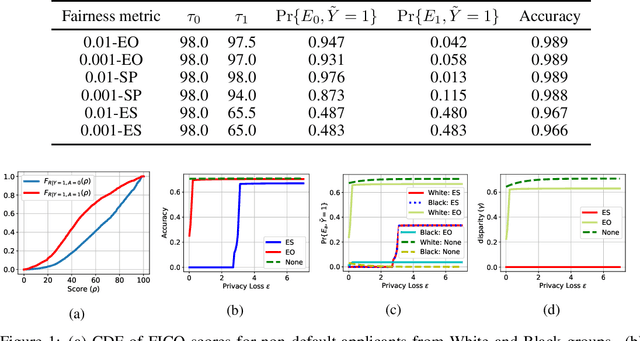Fair Sequential Selection Using Supervised Learning Models
Paper and Code
Oct 26, 2021


We consider a selection problem where sequentially arrived applicants apply for a limited number of positions/jobs. At each time step, a decision maker accepts or rejects the given applicant using a pre-trained supervised learning model until all the vacant positions are filled. In this paper, we discuss whether the fairness notions (e.g., equal opportunity, statistical parity, etc.) that are commonly used in classification problems are suitable for the sequential selection problems. In particular, we show that even with a pre-trained model that satisfies the common fairness notions, the selection outcomes may still be biased against certain demographic groups. This observation implies that the fairness notions used in classification problems are not suitable for a selection problem where the applicants compete for a limited number of positions. We introduce a new fairness notion, ``Equal Selection (ES),'' suitable for sequential selection problems and propose a post-processing approach to satisfy the ES fairness notion. We also consider a setting where the applicants have privacy concerns, and the decision maker only has access to the noisy version of sensitive attributes. In this setting, we can show that the perfect ES fairness can still be attained under certain conditions.
 Add to Chrome
Add to Chrome Add to Firefox
Add to Firefox Add to Edge
Add to Edge